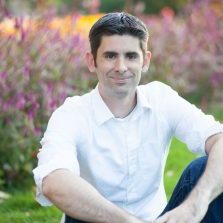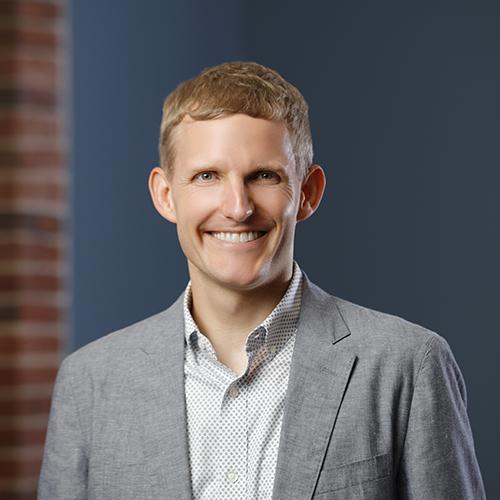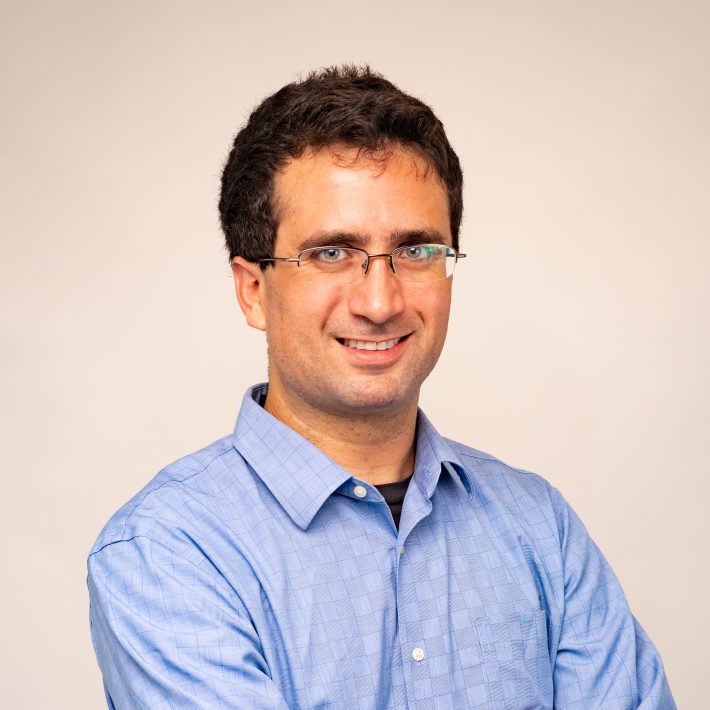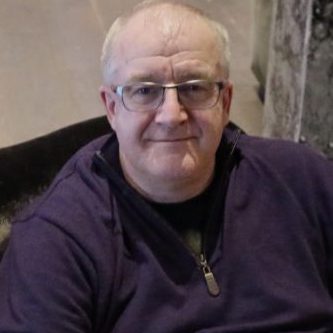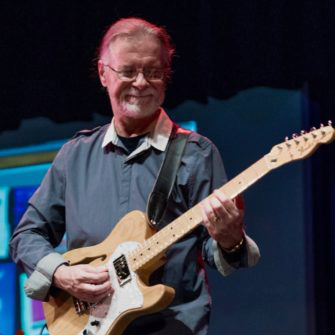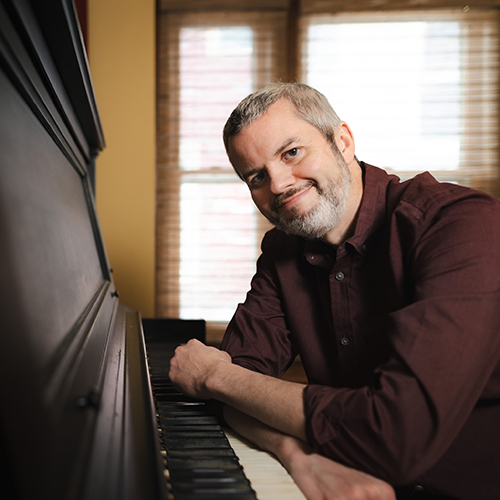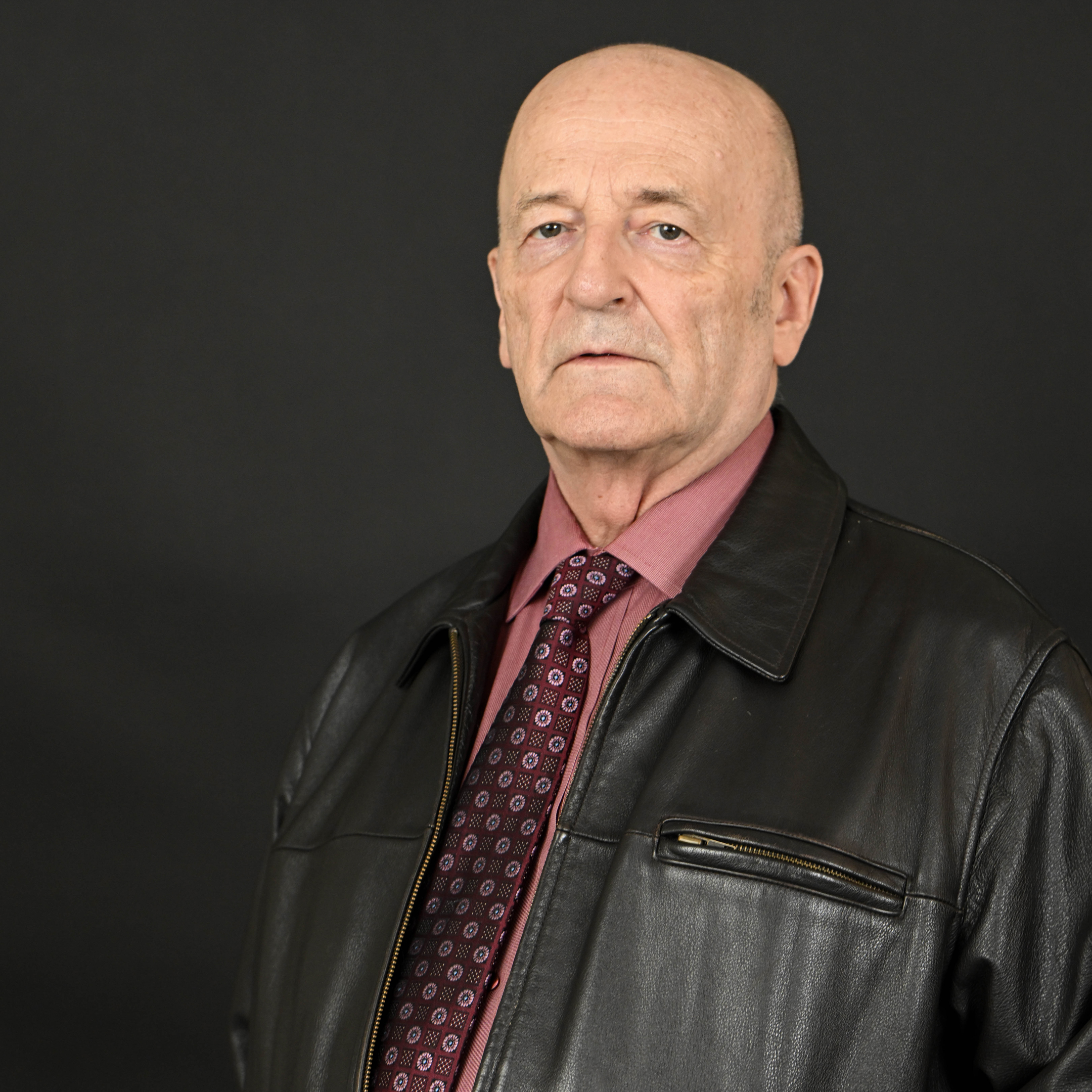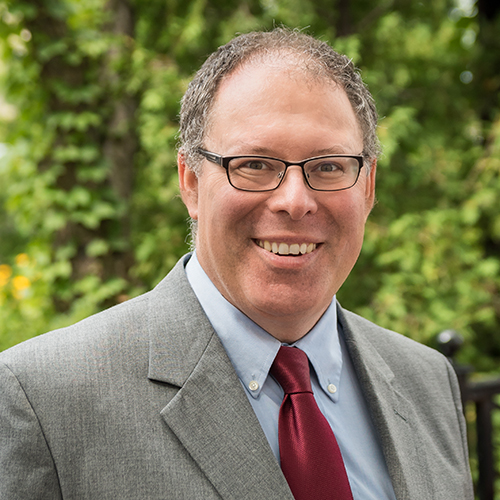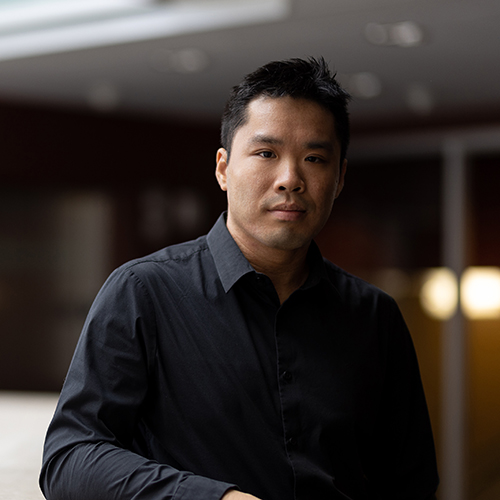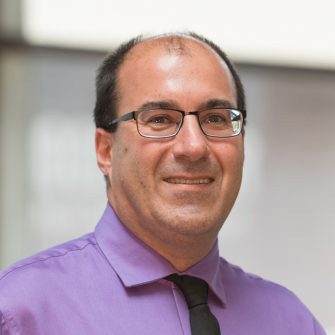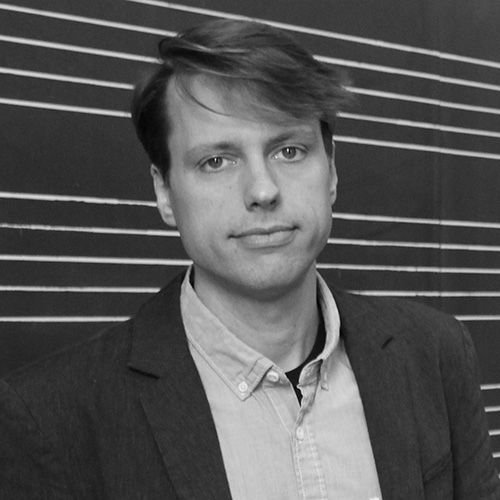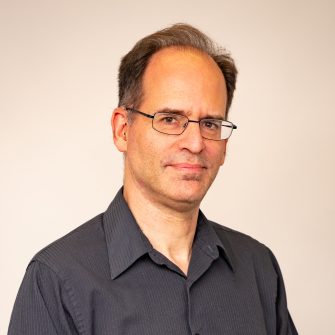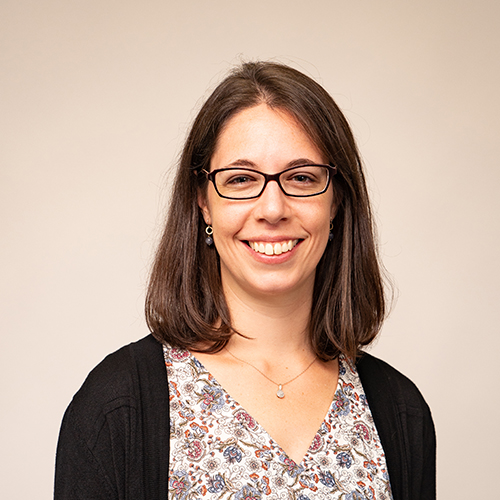William Marvin
Associate Professor of Music Theory
Academic Leave Spring 2024
BIOGRAPHY
William Marvin joined the Eastman faculty in 2002 after having taught music theory and aural skills at Oberlin College Conservatory of Music. Prior to that he was a teaching assistant at Eastman while working on his master’s degree, and received both the Edward Peck Curtis Award for Excellence in Teaching by a Graduate Student (1992), and the Outstanding Graduate Teaching Prize (1990). Marvin completed his Ph.D. in music theory at Eastman in 2002. He received his B.A. with highest honors from the State University of New York at Binghamton.
Marvin’s work in theory has focused on problems of tonality according to Schenkerian definitions as exemplified in Wagner’s Die Meistersinger von Nürnberg; examinations of form and tonal structure in Mozart’s Die Zauberflöte and Wagner’s Der fliegende Holländer; aural training in tonal and post-tonal music; sonata deformation in Mahler’s Third Symphony; improvisation in nineteenth-century French organ music; off-tonic beginnings and endings; and the quodlibet as a contrapuntal device in Broadway musicals. He has presented papers at international, national, and regional conferences. His published work can be found at Music Theory Online, Journal of Musicology, Intégral, Journal of Music Theory Pedagogy, and in several books edited by Deborah Stein (OUP), Matthew Bribitzer-Stull (Palgrave-Schirmer), and Gordon Sly (Ashgate).
His work in aural skills has taken him into the unusual realm of teaching aural skills—without notation—to blind music students. From 1997 through 2001, he worked individually with blind students, teaching aural skills and overseeing the rehearsal and performance of an ensemble work for 12 student performers, written by a blind composer and taught completely without notation.
Marvin oversees the undergraduate aural musicianship curriculum at Eastman, and he previously designed and implemented the aural skills curriculum at Oberlin. In both programs, aural musicianship is intimately connected with coursework in written music theory, and his curriculum emphasizes immediate recognition, comprehension, and expressive performance of musical material as heard and seen.
WORKS AND PUBLICATIONS
Current Research
“Wagner and the Uses of Convention? La solita forma in Wagner’s Operas and Music Dramas.”
“On Schenkerian Generation of B Sections: Prolongation from A, or Lead-In to A’?”
“Imaginary Stufen in the Music of Dmitri Shostakovich.”
“Octatonicism Reconsidered Yet Again: Tonal Context in Le sacre du Printemps.”
Publications
“Review: Markus Neuwirth and Pieter Bergé, eds. What is a Cadence? Theoretical and Analytic Perspectives on Cadences in the Classical Repertoire.” Music Theory Online 21.4, forthcoming.
“Review: William Kinderman, Wagner’s Parsifal.” Intégral 28, forthcoming.
“Review of the Fifth International Schenker Symposium (Mannes College, May 2013).” Theory and Practice 37-38 (2012-2013), 299-305.
“‘Und so weiter’: Schenker, Sonata Theory, and the Problem of the Recapitulation.” Theory and Practice 37-38 (2012-2013), 36-55.
“Review: Andrew Davis, Il Trittico, Turandot, and Puccini’s Late Style.” Nineteenth-Century Music Review 9/2 (December 2012), 336-340.
“Mahler’s Third Symphony and the Dismantling of Sonata Form,” in Keys to the Drama: Nine Perspectives on Sonata Forms, ed. by Gordon Sly (Burlington, VT: Ashgate, 2009), pp. 53-71.
“A Comparison of Four Sight-Singing and Aural-Skills Textbooks: Two New Approaches and Two Classic Texts in New Editions. [Carr/Benward, Karpinski/Kram, Krueger, and Ottman/Rogers].” Journal of Music Theory Pedagogy 22 (2008), pp. 131-147.
“Subverting the Conventions of Number Opera From Within: Hierarchical and Associational Uses of Tonality in Act One of Der fliegende Holländer,” in New Millenium Wagner Studies: Essays in Musical Culture, ed. by Matthew Bribitzer-Stull, Alex Lubet, and Gottfried Wagner (New York: Palgrave-Macmillan, 2007), pp. 71-90.
“Review of Benjamin McKay Ayotte, Heinrich Schenker: A Guide to Research, and David Carson Berry, A Topical Guide to Schenkerian Literature: An Annotated Bibliography With Indices.” Intégral 20 (2006), pp. 131-138.Link to article (JSTOR).
“Introduction to Writing Analytic Essays,” in Engaging Music: Essays in Musical Analysis, ed. by Deborah Stein (New York: Oxford University Press, 2005), pp. xi-xiv.
“The Function of ‘Rules’ in Die Meistersinger von Nürnberg.” Journal of Musicology, Volume 20/3 (Summer 2003), pp. 414-460. Link to article (JSTOR).
“Review of Daniel Kazez’s textbook, ‘Rhythm Reading: Elementary through Advanced Training.’” Music Theory Online, Volume 3.4 (1997). Link to MTO review.
Conference Papers
“Teaching Writing as a Music Theorist.” Paper and panel participation as part of Panel Discussion: Teaching Writing as a Music Theorist, at Society for Music Theory Conference, Milwaukee, Wisconsin, November 6, 2014.
“Wagner and the Uses of Convention? La solita forma in Die Feen through Lohengrin.” Paper presented at the 18th Biennial International Conference on Nineteenth-Century Music, Toronto, Canada, June 19, 2014.
“Teaching Sonata Form in the Aural Musicianship Classroom.” Paper presented at Music Theory Society of New York State Conference, Stony Brook, New York, April 6, 2013.
“Neighbors, False Neighbors, and Interruptions: Analytic Choices in Generating Outer Forms.” Paper presented at the Fifth International Schenker Symposium, New York, New York, March 17, 2013.
“Chants, Storms, Fugues, and Sonatas: Organ Improvisation in Nineteenth-Century France.” Paper presented at the Eastman Rochester Organ Initiative Conference on Improvisation, Rochester, New York, November 11, 2011.
“The Reprise Constraint: Reconsidering Schenkerian Interruption.” Paper presented at Society for Music Theory Conference, Minneapolis, Minnesota, October 27, 2011.
“‘Und so weiter’: Schenker, Sonata Theory, and the Problem of the Recapitulation.” Paper presented at Music Theory Society of New York State Conference, Buffalo, New York, April 10, 2011.
“Complete, Continuous, Monotonal: Tonality and Form in Mozart’s Operatic Finales.” Paper presented at the 6th European Music Analysis Conference, Freiburg, Germany, October 12, 2007.
Participant, Mannes Institute for Advanced Musical Studies at Yale University: Institute on Chromaticism, June 22-25, 2006.
“Thème libre and Sonata Form in Three Organ Works by César Franck.” Paper presented at the Fourteenth Biennial International Conference on Nineteenth-Century Music, Manchester, UK, July 6, 2006.
“Understanding the Tonic in Retrospect: The Auxiliary Cadence and Other Models.” Paper presented at the Dublin International Conference for Music Analysis, Dublin, Ireland, June 23, 2005.
Workshop on Dictation Strategy for Faculty at Queens College, CUNY. April 23, 2005.
“Mahler’s Third Symphony and the Dismantling of Sonata Form.” Paper presented at the Thirteenth Biennial International Conference on Nineteenth-Century Music, Durham, UK, July 6, 2004.
“Subverting the Conventions of Number Opera from Within: Hierarchical and Associational uses of Tonality In Act One of Der fliegende Holländer. ” Paper presented at “Lingering Dissonances: Wagner 2003,” Minneapolis, Minnesota, February 15, 2003.
“Simulating Counterpoint in Broadway Musicals: The Quodlibet as Compositional Procedure.” Paper presented at the joint meeting of the Society for Music Theory and the American Musicological Society, Columbus, Ohio, October 31, 2002.
“Aural Training through Atonal Music: Methods and Strategies.” Paper presented at the Music Theory Midwest Conference, Indianapolis, Indiana, May 15, 1999.
“Music Reading/Aural Skills: Distinctions and Pedagogical Implications.” Paper read at the Music Theory Midwest Conference, Louisville, Kentucky, May 16, 1998.
COURSES
Teaching
2007- . Associate Professor of Music Theory, Eastman School of Music, University of Rochester, Rochester, New York.
2002-2007. Assistant Professor of Music Theory, Eastman School of Music, University of Rochester, Rochester, New York.
1996-2002. Instructor of Music Theory and Aural Skills, Oberlin College Conservatory of Music, Oberlin, Ohio.
1988-1996. Teaching Assistant, Eastman School of Music, University of Rochester, Rochester, New York.
1995 (Spring). Part-time Instructor (sabbatical replacement), Nazareth College, Rochester, New York.
1986-1988. Graduate Assistant, Eastman School of Music, University of Rochester, Rochester, New York.
TH161 – Aural Musicianship I
TH162 – Aural Musicianship II
TH261 – Aural Musicianship III
TH262 – Aural Musicianship IV
College/University Courses Taught
Eastman School of Music
First Semester Theory (faculty coordinator)
Fourth Semester Theory (faculty coordinator)
First- through Fourth-Semester Aural Musicianship (faculty coordinator; designed and taught complete course sequence)
First-, Second-, and Third-Year Music Theory (complete course sequence)
First-Year Intensive Music Theory
First-Year Accelerated Music Theory
First- and Second-Year Sight-Singing Lab (complete course sequence)
Second-Year Aural Skills
Graduate Review of Music Theory
Graduate Review of Ear-Training
D.M.A. Seminar: Topics in Tonal Analysis and Literature
Ph.D./D.M.A. Seminar: Analysis of Nineteenth Century Opera
Ph.D. Seminar, Theory and Analysis of Tonal Music (Schenkerian Theory)
Oberlin College Conservatory of Music
Aural Skills I – V (designed and taught complete course sequence)
Introduction to Music Theory
Fundamentals of Music Theory I
Counterpoint in Composition
Nazareth College
Second-Semester Ear-Training
Academic Theses Advised
Ph.D.:
Kiyomi Kimura Andoh. [Bach]. Ph.D. dissertation, in progress. Second reader.
Aaron Grant. [Three-Key Expositions in Schubert]. Ph.D. dissertation, in progress. Second reader.
Samuel Bivens. [Analytic approaches to Wagner’s Die Walküre]. Ph.D. dissertation, in progress. Primary advisor.
Joan Campbell Huguet. “Voice-Leading and Formal Structures in Beethoven’s Rondo Forms.” Ph.D. dissertation, 2015. Primary advisor. Winner of Alfred Mann dissertation prize.
Anne Marie Weaver. “Russian Art Song before the Revolution: An International Exploration.” Ph.D. dissertation (musicology), 2015. Outside reader.
Samantha Mae Inman. “The Nexus of Inner and Outer Form in Joseph Haydn’s Late Instrumental Sonata Movements.” Ph.D. dissertation, 2014. Primary advisor.
Sarah Rose Marlowe. “Fugue in Context: Schenkerian Theory and Dmitri Shostakovich’s 24 Preludes and Fugues, Op. 87.” Ph.D. dissertation, 2013. Primary advisor.
Gilad Rabinovitch. “’Schenker the Galant?’: Tacit Knowledge, Contradiction, and Complementation in the Interaction between Gjerdingen’s Theory of Galant Schemata and Schenkerian Analysis.” Ph.D. essay (composition), 2013. Second reader.
Alex Stefaniak. “‘Poetic Virtuosity’: Robert Schumann as a Composer and Critic of Virtuoso Instrumental Music.” Ph.D. dissertation (musicology), 2012. Outside reader.
Nathan Fleshner. “The Musical Psyche: Interactions between the Theories of
Heinrich Schenker and Sigmund Freud.” Ph.D. dissertation, 2012. Second reader.
Justin Scott Perkins. “‘Voices of Boys’: The Influence of Britten’s Missa Brevis in D on his War Requiem.” Ph.D. essay (composition), 2011. Primary advisor.
Martin Nedbal. “Morals across the Footlights: German Opera, National Identity, and the Aesthetics of Morality, 1770-1830.” Ph.D. dissertation (musicology), 2009. Outside reader.
Peter Jocelyn Franck. “The Role of Invertible Counterpoint within Schenkerian Theory.” Ph. D. dissertation, 2007. Second reader. Winner of Alfred Mann dissertation prize.
D.M.A.:
James Sullivan. “A Post-Tonal Method Book for the Double Bass.” D.M.A. lecture recital, January 31, 2015. Primary advisor.
David Baskeyfield. “Theory and Practice of Improvisatory Composition in 19th and 20th Century Organ Symphonies.” D.M.A. research project, April 2014. Primary advisor.
David Baskeyfield. “Theory and Practice of Improvisatory Composition in the French Organ Symphony.” D.M.A. lecture recital, December 10, 2013. Primary advisor.
Michael Unger. “Gaston Litaize: Douze pieces pour grand orgue.” D.M.A. lecture recital, October 23, 2012. Primary advisor.
Rudy de Vos. “Tournemire, Cinq Improvisations.” D.M.A. lecture recital, May 4, 2008. Primary advisor.
Marcy Bacon. Schubert, “The Shepherd on the Rock.” D.M.A. lecture recital, November 12, 2006. Primary advisor.
Tama Gurewich. “Brahms Piano Concerto No. 1 in d minor, Op.15/I.” D.M.A. lecture recital, February 9, 2005. Primary advisor.
Heather Armstrong. “Bolcolm, Aubade and Spring Concertino.” D.M.A. lecture recital, April 5, 2004. Primary advisor.
M.A.:
David Geary. “Opera in the Undergraduate Curriculum.” MA final project, 2015. Primary advisor.
Nathan P. Burgraff. “Functional Keyboard Skills: The Importance of Playing Basic Harmonic Progressions.” MA final project, 2009. Primary advisor.
HyunJoon Park. “A Guided Approach to Introductory Baroque Improvisation.” MA final project, 2009. Primary advisor.
Johnandrew Slominski. “Pedagogy and Performance: Improvisation in Theory and Practice.” MA final project, 2008. Primary advisor.
Robert Laird. “Improvisation in the Aural Skills Classroom.” MA final project, 2005. Primary advisor.
Larisa Rozembaigher Simington. “Incorporating Keyboard Skills Pedagogy in the Undergraduate Aural Skills Classroom.” MA final project, 2004. Primary advisor.
B.M.:
Calvin Peck. “Russian Theoretical Foundations in Shostakovich’s Music: A Historical Approach to Shostakovich’s Harmonic Language.” BM Thesis, 2010. Primary advisor.
James Mitchell. “The Clowns Meet the Gods: Ariadne auf Naxos and Schenkerian Analysis.” BM Thesis, 2009. Primary advisor.
Jordan Wilson. “Early Songs of Fauré and their Textual Sources.” BM Thesis, 2008. Primary advisor.
Simon Carrington Fletcher. “Gershwin’s Songwriting Technique: Normative and Non-Normative Tonal Models.” BM Thesis, 2007. Primary advisor.
EDUCATION
Ph.D. in Music Theory, Eastman School of Music, University of Rochester, Rochester, New York, Doctor of Philosophy (Theory), 2002. Dissertation Title: “Tonality in Selected Set-Pieces from Richard Wagner’s Die Meistersinger von Nürnberg : A Schenkerian Approach”; Matthew Brown, advisor.
MA in Music Theory, Eastman School of Music, University of Rochester, Rochester, New York, 1994. Thesis Title: “Tonal Design and Structural Levels in the Finale from Act Two of Mozart’s Die Zauberflöte “; David Beach, advisor.
BA in Music, State University of New York, Binghamton, New York, 1986. Graduated with highest honors.
AWARDS
Edward Peck Curtis Award for Excellence in Undergraduate Teaching, University of Rochester, Rochester, New York, 2014.
Grant from Professional Development Committee, Eastman School of Music, University of Rochester, Rochester, New York. 2003. Grant allowed continued development of course websites for core undergraduate aural skills curriculum.
Edward Peck Curtis Award for Excellence in Teaching by a Graduate Student, University of Rochester, Rochester, New York, 1992.
Outstanding Graduate Teaching Prize, Eastman School of Music, University of Rochester, Rochester, New York, 1990.
PROFESSIONAL ACTIVITIES
Service (Selective)
Affiliate Faculty, Department of Musicology, Eastman School of Music, University of Rochester, Rochester, New York. 2013-present.
Theory Department TA Training, Eastman School of Music, University of Rochester, Rochester, New York. 2002-present. Week long training program held annually.
Theory Department Undergraduate Curriculum Committee, Eastman School of Music, University of Rochester, Rochester, New York. 2002-present. Chair, 2003-2008, 2010-present.
Undergraduate Theory Major Academic Advisor, Eastman School of Music, University of Rochester, Rochester, New York. 2009-present.
Academic Integrity Committee, Eastman School of Music, University of Rochester, Rochester, New York. 2003-2006, 2008-present. Chair, 2011- present.
Master’s Degree in Music Theory Pedagogy Academic Advisor, Eastman School of Music, University of Rochester, Rochester, New York. 2003-2009, Spring 2013.
D.M.A. Comprehensive Exam Committee, Eastman School of Music, University of Rochester, Rochester, New York. 2003, 2004-2005, Summer 2006 (chair).
Teaching Assistant Prize Committee, Eastman School of Music, University of Rochester, Rochester, New York. 2003, 2007, chair 2008.
Aural Skills Graduate Assistant Auditions, Eastman School of Music, University of Rochester, Rochester, New York. 2002-2009.
Coaching
Douglas O’Connor – Bach dm Chaconne, trans. for alto saxophone. One analytic coaching, December 2009.
Rudy de Vos – Tournemire Cinq Improvisations. Advisor for lecture recital, May 4, 2008.
Marcy Bacon – Schubert “The Shepherd on the Rock” Advisor for lecture recital, November 12, 2006.
Tama Gurewich – Brahms Piano Concerto No. 1 in d minor, Op.15/I Advisor for lecture recital, February 9, 2005.
Tim Pyper and Christopher Jacobson – three coachings on organ improvisation/keyboard skills for AGO certification, Fall 2005.
Luke Massery – Schumann Piano Concerto in a minor. One analytic coaching, October 2005.
Robert Raymond – six coachings on 18th Century violin ornamentation and improvisation, Fall 2005.
Christopher Howard – Bach Cello Suite No. 3 in C (viola). One analytic coaching, November 2005.
Alaina Pritz and Filip Blachnio – Brahms Clarinet Sonata in f minor, Op. 120/1. One analytic coaching, December 2005.
Jihyun Yun (violin): J. S. Bach, Sonata in C major: Fugue. One analytic coaching, 2004.
Heather Armstrong (oboe): Bolcolm, Aubade and Spring Concertino. Advisor for Lecture Recital, April 5, 2004.
The Offbeats (jazz a cappella vocal group), 1999-2002.
Felicia Wolfe (oboe): Mozart, Oboe Quartet, 2000.
Alison Zlotow (violin): Schoenberg, Violin Fantasy, 2000.
Affiliations
Society for Music Theory
Music Theory Society of New York State
Theory and Practice, Reviews Editor (2017-2019)
President (2013-2017)
Theory and Practice Subscriptions Manager (2009-2013)
Program Committee Chair (2011-2012)
Editorial Board, Journal of Music Theory Pedagogy (2010-present)
Subscriptions Manager, Theory and Practice (2009-present)

